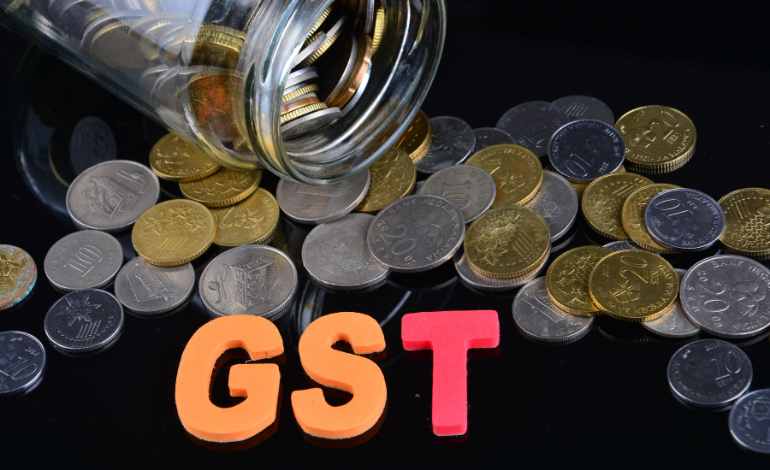
The New Classification of MSME Based on Turnover
Micro, Small, and Medium Enterprises (MSMEs) are crucial in driving economic growth, promoting entrepreneurship, and generating employment opportunities in India. Recognizing their significance, the government has implemented various policies and measures to support and strengthen this vital sector. In line with its commitment to ease of doing business and simplifying regulations, the Indian government introduced a new classification of MSMEs based on their annual turnover in 2020. This article explores the significance of this new classification, its impact on MSMEs, and its implications for India’s economic landscape.
Historical Context: The Evolution of MSME Classification in India
Before 2020, MSMEs were classified based on investment in plant and machinery (manufacturing sector) and equipment (service sector). This classification system led to anomalies and constraints, especially with the rapidly changing business landscape and technological advancements. The definition of MSMEs often discouraged them from growing beyond the prescribed investment limits, as it would result in losing benefits and incentives available to smaller enterprises.
The New Classification Based on Turnover
In a significant move to address these limitations and foster MSME growth, the Indian government announced a new definition of MSMEs based on their annual turnover. The revised classification came into effect on July 1, 2020, through the enactment of the MSME Amendment Act.
As per the new classification, MSMEs are categorized based on annual turnover rather than plant, machinery, or equipment investment. The classification is as follows:
- Micro Enterprises: Firms with an annual turnover of up to INR 5 crores (approximately USD 677,000).
- Small Enterprises: Firms with an annual turnover between INR 5 crores and INR 75 crores (approximately USD 677,000 to USD 10 million).
- Medium Enterprises: Firms with an annual turnover between INR 75 crores and INR 250 crores (approximately USD 10 million to USD 34 million).
Benefits and Impact of the New Classification
The new classification of MSMEs based on turnover has several implications for the sector and the overall Indian economy:
- Encouraging Growth: The turnover-based classification encourages MSMEs to focus on expanding their businesses without fearing losing their MSME status. It promotes a growth-oriented approach, leading to increased investments, job creation, and contribution to the country’s GDP.
- Increased Access to Credit: The new classification enhances MSMEs’ access to credit by providing them with a more transparent and credible financial profile. With an increased turnover threshold, medium-sized enterprises can access loans and credit facilities more easily, enabling them to scale their operations.
- Ease of Compliance: The revised classification simplifies compliance procedures for MSMEs, as they must report their annual turnover for categorization. This reduces the administrative burden on businesses and improves the ease of business in India.
- Targeted Government Support: The new classification enables the government to tailor support and incentives more effectively to specific categories of MSMEs based on their turnover. It facilitates the delivery of targeted schemes and policies to promote growth and competitiveness.
- Promotion of Formalization: The turnover-based classification encourages MSMEs to maintain proper books of accounts and comply with tax regulations. This promotes formalization and contributes to widening the tax base.
- Boost to Startups and Innovation: By encouraging growth and reducing the compliance burden, the new classification promotes an enabling environment for startups and innovative ventures to thrive and contribute to technological advancements.
- Data-driven Policy Decisions: The turnover-based classification provides the government with more accurate data on the scale and contribution of MSMEs to the economy. This data-driven approach allows policymakers to make informed decisions and formulate policies that foster MSME development.
Challenges and Way Forward
While the new classification brings several advantages, it is not without challenges:
- Definition of Turnover: Determining annual turnover may be complex for certain businesses with diversified revenue streams, making it essential to have clarity in calculating turnover.
- Data Accuracy: Accurate reporting of turnover by MSMEs is crucial to ensuring the effectiveness of the new classification. The government must establish mechanisms to verify the reported turnover data to avoid potential misrepresentation.
- Transition Period: MSMEs classified based on the earlier investment-based criteria may need to adjust to the new classification. The government must facilitate a smooth transition and provide awareness programs to educate stakeholders about the change.
- Credit Availability: While the new classification enhances access to credit for medium-sized enterprises, ensuring credit is available at favourable terms to foster growth is essential.
Importance of MSME for the Indian Economy
Micro, Small, and Medium Enterprises (MSMEs) play a crucial role in the Indian economy and are considered the backbone of economic growth and development. Their significance arises from a multitude of reasons, making them integral to the overall economic landscape of the country:
- Employment Generation: MSMEs are major contributors to employment generation in India. They provide job opportunities to a significant portion of the population, particularly in rural and semi-urban areas. As labour-intensive enterprises, MSMEs absorb surplus labour, and help reduce unemployment, thus promoting inclusive growth.
- Contribution to GDP: MSMEs substantially contribute to India’s Gross Domestic Product (GDP). Despite their relatively small size individually, the collective output of MSMEs in various sectors significantly contributes to the country’s overall economic output.
- Promoting Entrepreneurship: MSMEs encourage entrepreneurship and foster a culture of innovation and risk-taking. They provide a platform for aspiring entrepreneurs to turn their ideas into viable businesses, leading to economic diversification and technological advancements.
- Regional Development: MSMEs are crucial in promoting balanced regional development by establishing businesses in rural and remote areas. Their presence helps reduce regional disparities and creates economic opportunities beyond urban centres.
- Export Potential: Many MSMEs are engaged in export-oriented activities, contributing to foreign exchange earnings and improving India’s trade balance. They are an essential link in the global supply chain and enhance India’s competitiveness in the international market.
- Ancillary Industries and Supply Chain: MSMEs form an integral part of the supply chain ecosystem, catering to the needs of larger industries. They often act as ancillary units, supplying components, raw materials, and services to bigger enterprises, thus fostering industrial growth and synergy.
- Resilience and Adaptability: MSMEs exhibit a higher level of flexibility and adaptability compared to larger enterprises. Their small size allows them to respond quickly to market changes, innovations, and emerging opportunities, contributing to economic dynamism.
- Fostering Inclusive Growth: The growth of MSMEs positively impacts the distribution of wealth in the economy. By providing opportunities to small entrepreneurs and engaging with diverse sections of society, MSMEs contribute to inclusive growth and reduce income inequality.
- Innovation and Niche Products: MSMEs are often at the forefront of innovation and the development of niche products. Their agility allows them to identify market gaps and create specialized offerings, contributing to industry diversification and enhanced competitiveness.
- Reducing Dependence on Imports: The growth of MSMEs in various sectors helps reduce India’s import dependence. By producing goods domestically, MSMEs contribute to import substitution, saving foreign exchange and strengthening the country’s economic resilience.
Conclusion
The new classification of MSMEs based on annual turnover is a progressive step by the Indian government to promote the growth and development of this critical sector. By addressing the limitations of the earlier investment-based classification, the turnover-based approach encourages MSMEs to scale their operations, innovate, and contribute to India’s economic growth. Increased access to credit, ease of compliance, and targeted government support will likely bolster MSMEs’ competitiveness and enable them to play a more significant role in India’s journey towards becoming a USD 5 trillion economy. As the government continues to fine-tune its policies and support mechanisms, the MSME sector is poised to emerge as a major driver of employment generation and economic prosperity in the years to come.
Are you an MSME in India seeking expert assistance to establish and grow your business? Look no further! Chennai Filings is your trusted partner in navigating the complexities of business registration, compliance, funding, and taxation.
With our comprehensive suite of services tailored for MSMEs, we can help you streamline your operations, access funding opportunities, and stay compliant with regulatory requirements. Whether you are a startup or an established business, our team of experts is committed to providing personalized solutions to meet your unique needs.
Don’t let paperwork and regulatory hurdles hold you back. Register your MSME with Chennai Filings help and focus on what truly matters – growing your business and achieving success.










